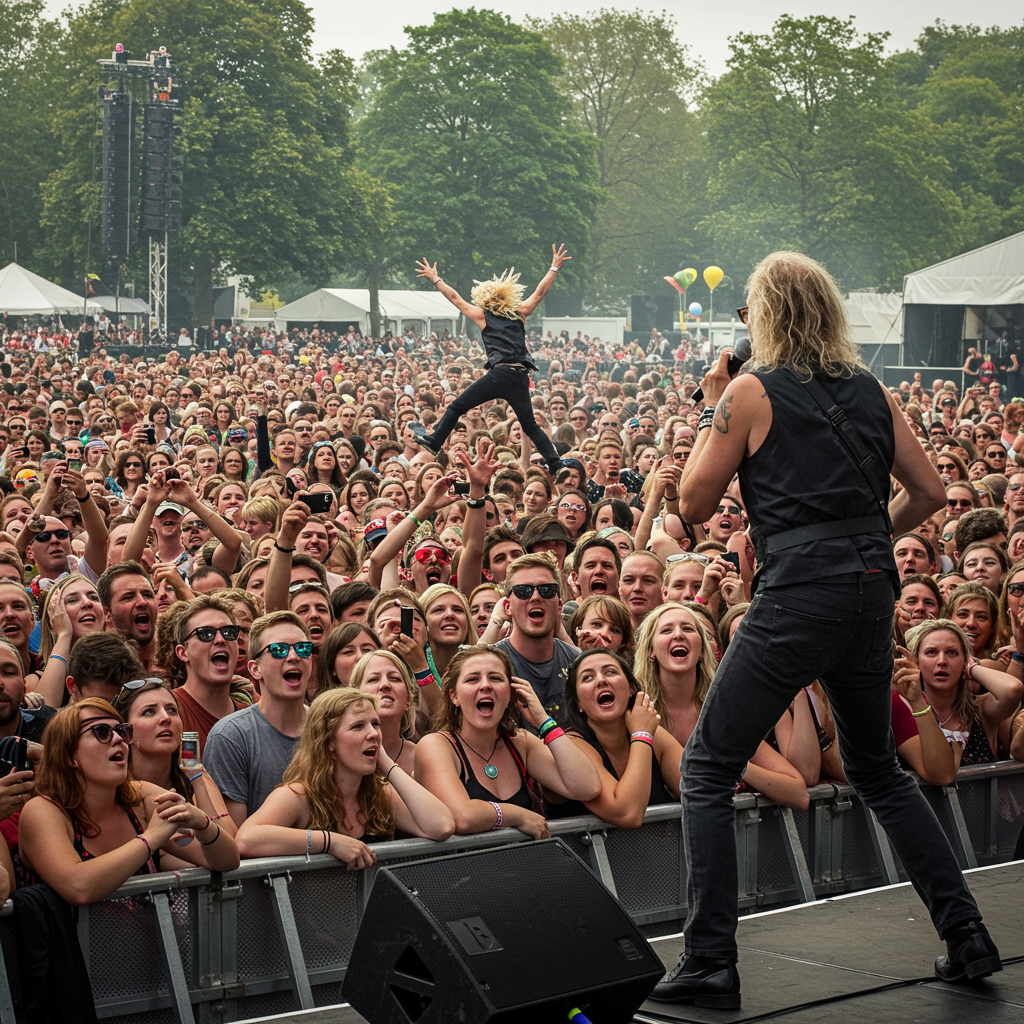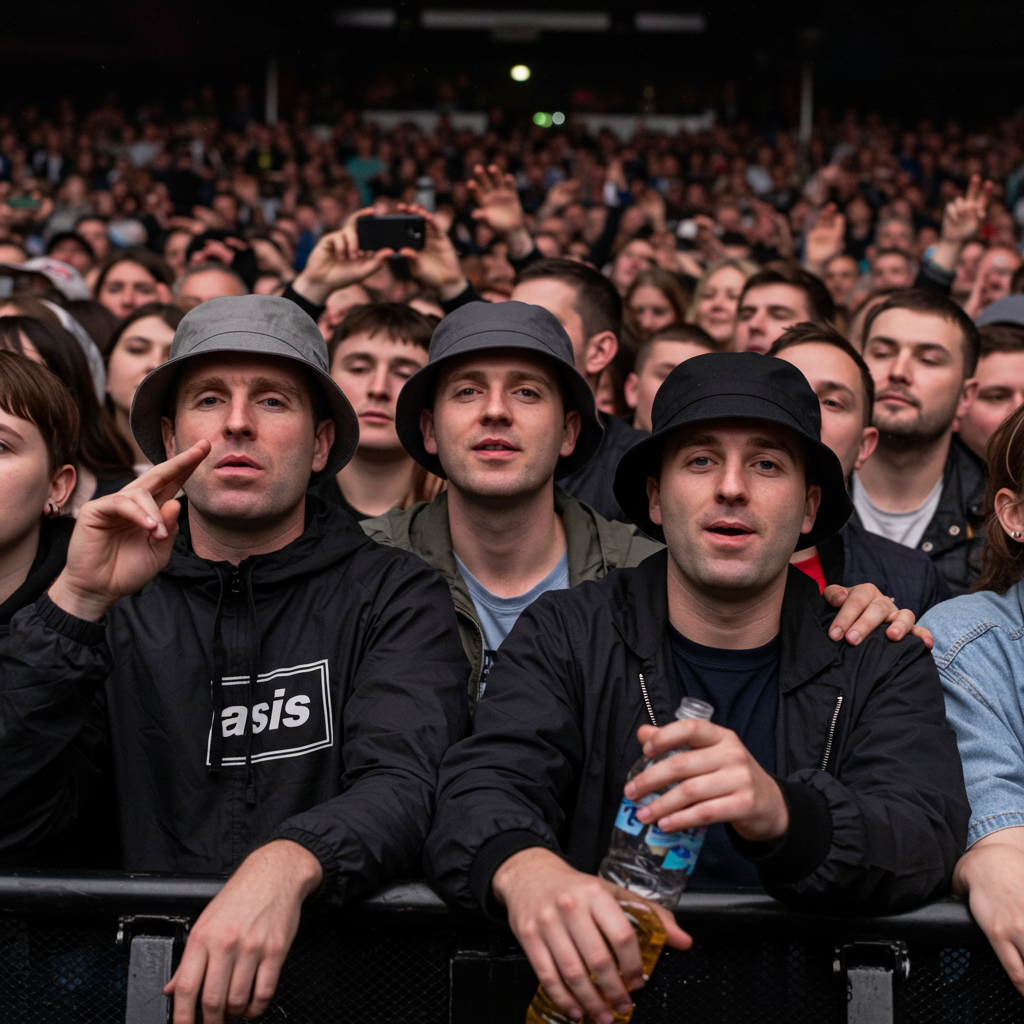The BBC has formally apologized following a controversial live performance by the punk rap duo Bob vylan at the Glastonbury Festival. The incident, which occurred on the West Holts stage and was streamed live on BBC iPlayer, has led to significant internal reflection and immediate changes to the broadcaster’s policy on live music events. Critics, including festival organizers and government officials, condemned the performance’s content, specifically chants deemed antisemitic and inflammatory.
Despite the band having been classified as “high risk” prior to the festival, the BBC chose to live stream the set. This decision is now at the heart of the controversy. The broadcaster has acknowledged critical errors in its planning and execution, leading to widespread apologies from its leadership and promising enhanced protocols to prevent similar issues in the future. The fallout highlights the complex challenges public broadcasters face in managing live content and balancing editorial judgment with the potential for offensive material.
Unpacking the Controversial Glastonbury Set
The performance by Bob Vylan, known for their politically charged lyrics, quickly generated headlines. During their set on Saturday, June 28, the duo voiced explicit support for Palestine. This included leading the crowd in chants of “free, free Palestine.” More controversably, the band also led chants of “death, death to the IDF.” This latter chant, directed at the Israel Defense Forces, drew immediate and widespread condemnation.
Screens behind the band projected messages, including one stating, “Free Palestine – United Nations have called it a genocide – the BBC calls it a ‘conflict’.” This directly criticized the BBC’s language surrounding the conflict. The performance was live-streamed across BBC platforms, bringing the controversial content directly into viewers’ homes in real time. This immediacy proved to be a critical factor in the subsequent crisis.
The Immediate Backlash and Official Responses
The reaction to the performance was swift and severe. Glastonbury organizer Emily Eavis publicly stated that Bob Vylan’s words on stage “very much crossed a line.” She emphasized that there is no place at Glastonbury for antisemitism, hate speech, or incitement to violence. This signaled a clear disapproval from the festival itself.
Government officials also weighed in. Culture Secretary Lisa Nandy criticized the BBC’s handling of the situation. US Deputy Secretary of State Christopher Landau labeled the performance a “hateful tirade.” Political figures expressed alarm that such content was broadcast by the UK’s public service media institution. Advocacy groups and members of the Jewish community voiced deep hurt and anger over the perceived antisemitism on a major national platform.
BBC Leadership Responds: Apologies and Regret
In the wake of the outcry, BBC Director-General Tim Davie issued a formal apology. In an internal memo to staff on Thursday, July 3, Davie expressed deep regret. He stated, “I deeply regret that such offensive and deplorable behavior appeared on the BBC and want to say sorry – to our audience and to all of you, but in particular to Jewish colleagues and the Jewish community.” He was unequivocal, asserting that “there can be no place for antisemitism at the BBC.” Davie was on-site at Glastonbury when informed of the incident and immediately ordered the performance be pulled from any future coverage.
BBC Chair Samir Shah also released a separate statement. Shah apologized “to all our viewers and listeners and particularly the Jewish community.” He specifically referenced allowing Bob Vylan to express “unconscionable antisemitic views” live on air. Shah praised Davie’s swift response and confirmed the BBC Board met to discuss the incident and actions moving forward. These statements underscored the gravity with which the BBC viewed the situation internally and externally.
Acknowledging System Failures and Risk Management
A key element of the BBC’s response was the acknowledgment of failures in its own processes. The broadcaster revealed that Bob Vylan was one of seven acts classified as “high risk” following standard risk assessments conducted for all Glastonbury performers. This classification typically flags artists whose content or performance style carries a higher potential for controversial material. Despite this warning, a decision was made to proceed with live streaming all acts, including those deemed high risk.
The internal logic behind this decision was that potential “compliance risks” could be managed in real time. This relied on tools like on-screen language or content warnings. However, the BBC’s statement admitted, “This was clearly not the case.” The real-time mitigation strategy proved insufficient to handle the nature of the controversial content. During the broadcast, warnings did appear twice on the stream. Despite this, the editorial team on duty made the decision not to cut the live feed. The BBC explicitly stated that this decision not to interrupt the broadcast was “an error.” This critical failure allowed the controversial chants to air live for an extended period.
The performance was quickly removed from BBC iPlayer and BBC Sounds after Davie’s instruction. However, the live feed continued until shortly after 8 p.m. while technical teams worked on solutions to fully stop the broadcast. This technical delay further extended the public exposure to the content.
Immediate Policy Overhaul for Live Events
The Bob Vylan controversy has served as a catalyst for significant and immediate policy changes at the BBC. The public broadcaster has announced strengthened editorial practices specifically targeting live music programming. The most impactful change is a new rule: any musical performance deemed “high risk” under the BBC’s assessment framework will no longer be broadcast or streamed live. This moves away from relying solely on real-time warnings and interventions for such acts.
Furthermore, the BBC will mandate on-site editorial policy support at major music festivals and events. This aims to improve compliance processes and provide faster, more informed advice in challenging live situations. The broadcaster also committed to providing more detailed practical guidance. This guidance will clarify the criteria and procedures for withdrawing a live stream when controversial content arises. The BBC stated it is also taking steps to ensure accountability for those responsible for the failings in this specific live broadcast. These measures represent a fundamental shift in how the BBC approaches the potential risks associated with live music coverage.
Broader Consequences for Bob Vylan
Beyond the BBC’s policy changes, the Bob Vylan performance triggered wider repercussions for the duo themselves. The U.S. State Department reportedly revoked their travel visas. This effectively canceled their planned fall tour in the United States. The band has also been removed from the lineup of several upcoming European festivals. Reports indicate cancellations for shows in Manchester (Radar Festival), Cologne, and Gisors, France (Kave Fest).
Adding to the legal ramifications, British police have initiated a criminal investigation into the performance. This investigation will likely examine whether the chants or any other elements of the set constitute a public order offense or incite hatred. The band has reportedly been dropped by their agent as well. These consequences highlight the severe professional and legal fallout that can result from controversial public statements, particularly in a highly charged political climate.
Bob Vylan’s Defense and Artist Solidarity
Bob Vylan has issued their own statements defending their actions. They clarified that their calls of “death to the IDF” were aimed at ending a “violent military machine,” not at specific Jewish individuals or any other racial or demographic group. The band asserted they are “not for the death of Jews, Arabs, or any other race or group of people.” They described the IDF as a “machine whose own soldiers were told to use ‘unnecessary lethal force’ against innocent civilians.” They also highlighted the extensive destruction in Gaza.
The duo positioned themselves as a “distraction from the story,” arguing that the focus on their words diverts attention from accountability for “criminal inaction” regarding the conflict in Gaza. They suggested they are being “targeted for speaking up.” Despite the widespread condemnation, some artists have publicly expressed support for Bob Vylan. Artists like Massive Attack, Lambrini Girls, Amyl And The Sniffers, and Soft Play have reportedly shown solidarity. They have argued that the media focus should remain on the events in Gaza rather than on artists speaking out. This division reflects broader societal debates about the boundaries of free speech, particularly concerning highly sensitive geopolitical issues and potential interpretations of hate speech.
Frequently Asked Questions
What specifically caused the controversy during Bob Vylan’s Glastonbury performance?
The controversy arose primarily from chants led by the band during their live set on the West Holts stage. These included “Free, free Palestine” and, more controversially, “death, death to the IDF” (Israel Defense Forces). Screens also displayed messages criticizing the BBC’s language about the conflict. These elements, streamed live on BBC platforms, were widely condemned as inflammatory and interpreted by many, including the BBC and festival organizers, as antisemitic.
What were the main mistakes the BBC acknowledged in broadcasting the set?
The BBC acknowledged several key errors. Firstly, despite classifying Bob Vylan as a “high risk” act, they decided to live stream the performance. Secondly, they wrongly assumed that potential compliance issues could be effectively mitigated in real time using warnings, which proved inadequate. Thirdly, and critically, the editorial team monitoring the stream decided not to cut the feed when the controversial content escalated, despite warnings appearing twice. The BBC explicitly called this decision “an error.”
What actions has the BBC taken following the Bob Vylan incident?
In response to the controversy, the BBC has announced immediate policy changes for live music programming. They will no longer broadcast or stream live performances deemed “high risk.” They will also mandate on-site editorial policy support at major festivals to provide faster advice. Additionally, the BBC will provide more detailed guidance on when and how to withdraw a live stream. The broadcaster is also taking steps to ensure accountability for the specific failings in this incident.
Conclusion: Navigating Live Broadcast Challenges
The Bob Vylan incident at Glastonbury and the subsequent BBC apology underscore the significant challenges inherent in live broadcasting major events. While offering unparalleled immediacy, live streams bypass the traditional delays that allow for content review and potential censorship. The BBC’s acknowledged failure to effectively manage a “high risk” act highlights the tension between showcasing diverse artistic expression and upholding editorial standards and legal obligations regarding hate speech.
The immediate policy changes signal a more cautious approach from the BBC regarding potentially controversial live content. Moving forward, audiences can expect a stricter filter on which performances are aired in real time, particularly from acts flagged as carrying higher risk. This incident serves as a stark reminder of the potential consequences when live content crosses perceived lines, impacting not only the broadcaster but also the artists involved, leading to canceled tours, festival bans, and even police investigations. The debate over freedom of speech versus the potential for harm in public discourse remains a complex and ongoing challenge for media organizations.



